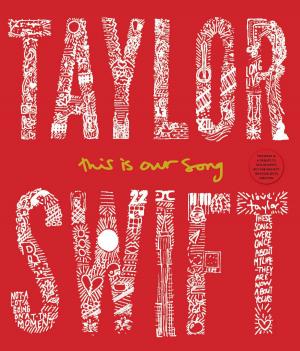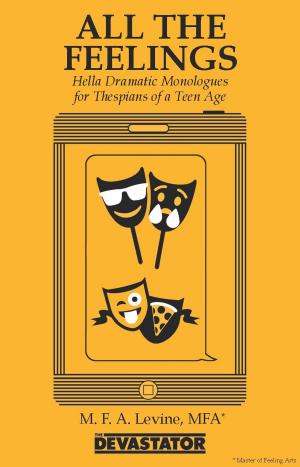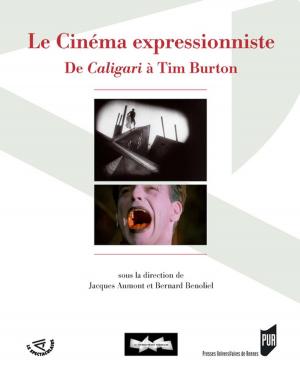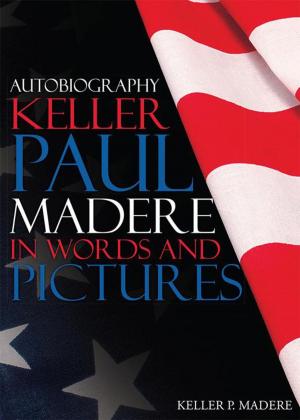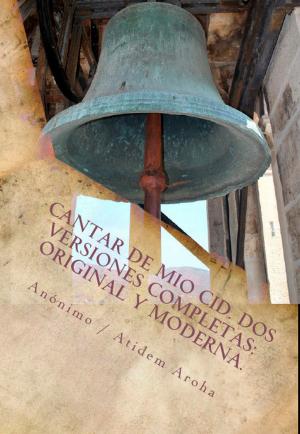| Author: | Eoin Flynn | ISBN: | 9780955267833 |
| Publisher: | Bell & Bett | Publication: | May 1, 2014 |
| Imprint: | Language: | English |
| Author: | Eoin Flynn |
| ISBN: | 9780955267833 |
| Publisher: | Bell & Bett |
| Publication: | May 1, 2014 |
| Imprint: | |
| Language: | English |
Sonov Obituary:
The death has occurred of Arthur Laars Prentiss Sonov. I was saddened to hear the news though we had not been on speaking terms for some time.
Laars was a well-known figure among the theâtre-going public. Someone who has remained a dear friend to us both referred to him once as 'the Socrates of hecklers'. I myself think that this is paying him too great a compliment but I will admit that he did have occasional flashes of brilliance.
When I say that he was well known to people frequenting theâtres, I mean rather that Laars's loud interjections during the action were famous: "Shopping list!" he would cry out to an actor he felt was reading his lines as if they were one. Or if the actor committed some awkwardness with a prop he would exclaim indignantly: "Sir! You're drunk!" Of course this would shake even the most poised performer (so few!). Visiting companies were always amazed that this was tolerated. It was explained to them that Laars was a well-loved eccentric (has not the phrase 'Put a Laars in it!' spread far and wide?), audiences expected and loved his contributions and they were considered part of the evening's entertainment.
What the guffawing public did not realise was that Laars was not trying to be funny. Except for the odd few jibes at bad acting and set design like those mentioned above he mostly ignored these failings. It was plot construction and development that Laars was into (quite literally 'into' as I will explain). If he felt the action was progressing too slowly he would call out with genuine irritation: "Come on! Come on!" A completely facile dramatic problem or solution of the same would be marked by a loud: "Clunk!" Among styles of drama it was preachy left-wing plays that really got his goat ('comitragedies' he called them) any thing of this kind would have him shouting: "Lecture with slides!" or "Cardboard!" and even "The high-handed policy of Sparta!"
Another recurring theme of his was, if he thought he recognised the skeleton of a borrowed plot, to click loudly and then inform the whole audience: "Troilus and Cressida!" (for instance). It was this particular part of his repertoire that was to cause the break between us.
I had written a play dealing with the inter-relationships of a rural family over two generations. I am not ashamed to say that I had cut this work from off my heart, strip by painful strip. It was honest and long and demanded much from the audience. On its first and only performance barely ten minutes in I heard that click and that voice announcing with scorn: "The Riordans". The stupider members of the audience laughed so heartily and so long that the actors quite lost their timing and my poor play was killed without ever having been given a chance to live.
Laars did not at first realise that he had done me a terrible wrong. When I refused to speak to him and fled from every pub he followed me into, he at last sent me word through an intermediary (the dear friend mentioned earlier). In a sort of garbled communication he said that the thought that he had given me pain was causing himself even greater pain. I might be thinking that he was merely a disruptive attention-seeker. This was not the case. He was simply a person who entered completely the world of whatever play he was watching. It did not matter to him how good or bad, foolish or wise the play was as long as- "it was true to its own logic." So if something happened in this world that, it seemed to him, could not possibly happen, it was as if the ground was opening beneath him as in an earthquake. I believe this explanation or rather I believe that he believed it. I should add that he also offered to meet me in a duel in which he would not defend himself. I did not reply.
He was, as I said, well loved (myself was disappointed rather than angry). This makes what happened last winter such an outrage. One evening when Laars arrived at a theâtre for a performance a doorman placed himself in his path and said in a cruel tone:
"The patient is known to me- no way, bud."
We have not yet learned the identity of this individual (surely the greatest scoundrel ever to wear theâtre livery!) but our noose is closing. Laars had many friends and more than one dickey bow has been laid aside in anticipation of knocking manners down through that particular shaven skull. Poor Laars was a simple soul with no experience of the real coarseness of life. If this boor had clubbed him with the haft of a hatchet he could not have had a more terrible effect. Earthquake indeed! He must have wandered the streets for hours, hatless and coatless as he was. By the time he returned to his lonely bedsit he had already taken that raffredore that was to end his life. Our dear mutual friend was with him when he died and he made a record of his last words. They are moving indeed and I would like to publish them here:
"What I love beyond all else in the theâtre is seeing the actors' faces when they take their bows at the end of the performance. It is always such a surprise: the foolish hysterical woman of the play looks down at us now with cool intelligence; the loveable old fool now seems bored and disdainful of us; the screaming bigot has become a modest and friendly young man."
He did write one play himself. Its title was, I believe- "Grønland" (or something odd like that) but the manuscript seems to be lost.
A person who lived and behaved as Laars did can not have been very happy. He was often a veritable saw on the nerves. But there was something beautiful about him.
Sonov Obituary:
The death has occurred of Arthur Laars Prentiss Sonov. I was saddened to hear the news though we had not been on speaking terms for some time.
Laars was a well-known figure among the theâtre-going public. Someone who has remained a dear friend to us both referred to him once as 'the Socrates of hecklers'. I myself think that this is paying him too great a compliment but I will admit that he did have occasional flashes of brilliance.
When I say that he was well known to people frequenting theâtres, I mean rather that Laars's loud interjections during the action were famous: "Shopping list!" he would cry out to an actor he felt was reading his lines as if they were one. Or if the actor committed some awkwardness with a prop he would exclaim indignantly: "Sir! You're drunk!" Of course this would shake even the most poised performer (so few!). Visiting companies were always amazed that this was tolerated. It was explained to them that Laars was a well-loved eccentric (has not the phrase 'Put a Laars in it!' spread far and wide?), audiences expected and loved his contributions and they were considered part of the evening's entertainment.
What the guffawing public did not realise was that Laars was not trying to be funny. Except for the odd few jibes at bad acting and set design like those mentioned above he mostly ignored these failings. It was plot construction and development that Laars was into (quite literally 'into' as I will explain). If he felt the action was progressing too slowly he would call out with genuine irritation: "Come on! Come on!" A completely facile dramatic problem or solution of the same would be marked by a loud: "Clunk!" Among styles of drama it was preachy left-wing plays that really got his goat ('comitragedies' he called them) any thing of this kind would have him shouting: "Lecture with slides!" or "Cardboard!" and even "The high-handed policy of Sparta!"
Another recurring theme of his was, if he thought he recognised the skeleton of a borrowed plot, to click loudly and then inform the whole audience: "Troilus and Cressida!" (for instance). It was this particular part of his repertoire that was to cause the break between us.
I had written a play dealing with the inter-relationships of a rural family over two generations. I am not ashamed to say that I had cut this work from off my heart, strip by painful strip. It was honest and long and demanded much from the audience. On its first and only performance barely ten minutes in I heard that click and that voice announcing with scorn: "The Riordans". The stupider members of the audience laughed so heartily and so long that the actors quite lost their timing and my poor play was killed without ever having been given a chance to live.
Laars did not at first realise that he had done me a terrible wrong. When I refused to speak to him and fled from every pub he followed me into, he at last sent me word through an intermediary (the dear friend mentioned earlier). In a sort of garbled communication he said that the thought that he had given me pain was causing himself even greater pain. I might be thinking that he was merely a disruptive attention-seeker. This was not the case. He was simply a person who entered completely the world of whatever play he was watching. It did not matter to him how good or bad, foolish or wise the play was as long as- "it was true to its own logic." So if something happened in this world that, it seemed to him, could not possibly happen, it was as if the ground was opening beneath him as in an earthquake. I believe this explanation or rather I believe that he believed it. I should add that he also offered to meet me in a duel in which he would not defend himself. I did not reply.
He was, as I said, well loved (myself was disappointed rather than angry). This makes what happened last winter such an outrage. One evening when Laars arrived at a theâtre for a performance a doorman placed himself in his path and said in a cruel tone:
"The patient is known to me- no way, bud."
We have not yet learned the identity of this individual (surely the greatest scoundrel ever to wear theâtre livery!) but our noose is closing. Laars had many friends and more than one dickey bow has been laid aside in anticipation of knocking manners down through that particular shaven skull. Poor Laars was a simple soul with no experience of the real coarseness of life. If this boor had clubbed him with the haft of a hatchet he could not have had a more terrible effect. Earthquake indeed! He must have wandered the streets for hours, hatless and coatless as he was. By the time he returned to his lonely bedsit he had already taken that raffredore that was to end his life. Our dear mutual friend was with him when he died and he made a record of his last words. They are moving indeed and I would like to publish them here:
"What I love beyond all else in the theâtre is seeing the actors' faces when they take their bows at the end of the performance. It is always such a surprise: the foolish hysterical woman of the play looks down at us now with cool intelligence; the loveable old fool now seems bored and disdainful of us; the screaming bigot has become a modest and friendly young man."
He did write one play himself. Its title was, I believe- "Grønland" (or something odd like that) but the manuscript seems to be lost.
A person who lived and behaved as Laars did can not have been very happy. He was often a veritable saw on the nerves. But there was something beautiful about him.

